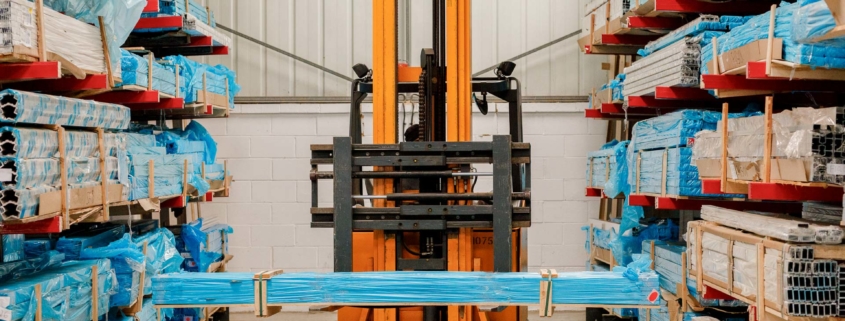High Demand & Tariffs: Aluminium in 2025
You have likely heard that the Trump Administration is imposing tariffs on global imports. In addition to country-specific tariffs, certain products have been earmarked. They include aluminium and steel. While we usually try to steer clear of politics, we have to keep pace with the international trade landscape. So, what do tariffs mean for the UK’s aluminium industry in 2025?
Why Introduce Aluminium Tariffs?
Tariffs on imported goods are an effective way of controlling the markets and ensuring that a nation’s products are competitively priced. The intention is to protect American industries and safeguard jobs. What’s more, it’s nothing new.
A 10% aluminium tariff was introduced by President Trump in 2018, as part of Section 232. However, in 2022, President Biden allowed the UK to supply up to 21,600 metric tonnes duty-free*. And, that is what our industry has delivered. However, from 12 March 2025, all aluminium and aluminium-intensive products exported to the US will incur a 25% tariff, with no exceptions.
The challenge is that US aluminium companies only produce enough to meet around half of the country’s needs. As such, manufacturers across many industries are heavily reliant on imports. Therefore, it will be interesting to see what internal pressures are put on the American Government to provide exemptions.
What Do Tariffs Mean for UK Aluminium Companies?
The tariffs are paid by the importer, not the exporter. Therefore, it doesn’t cost UK aluminium companies more to extract, process, fabricate, finish or ship parts. Yet, these rising costs could see American buyers finding cheaper options. This is likely to result in price negotiations and declining sales.
Canada will be hardest hit by the tariffs, as they are the largest exporter of aluminium to the US. They’ve already reciprocated by imposing tariffs on American imports.
Meanwhile, the UK aluminium industry has to explore alternative national and international buyers. This metal has considerable potential and can play an important role in delivering UK sustainability goals. So, it’s down to us all to promote its strength-to-weight ratio, non-corrosive properties and many other desirable properties.
Fortunately for us, the majority of Salesmade customers are UK-based, so we forecast that the direct impact of the tariffs on our business will be low. Despite that, we are always keeping an eye out for new markets and fresh opportunities.
UK Demand for Aluminium
The UK demand for aluminium is strong. Reuter’s Analysts (RA) predict it will be a top performer as a base metal in the London Metals Exchange during 2025**. RA also states that demand for this 100% recyclable material could result in price increases and supply shortfalls later in the year. In addition, the EU is considering reforms to the Carbon Border Adjustment Mechanism (CBAM) for aluminium imports. If implemented, this would reduce the paperwork and carbon emissions reporting for smaller-scale importers, which would include many UK aluminium suppliers. CBAM reforms may also lower the payable carbon tax and this would open up doors in Europe.
Aluminium 2025 In Conclusion
This is a heavier topic than we usually cover. However, we are aware that seeing aluminium tariffs in the news may have concerned some of our customers. The decisions made over the past few weeks do impact global trade and stability. However, we also see lots of positive opportunities for the aluminium industry and our team at Salesmade.
If you would like to discuss suitable aluminium extrusion profile design, fabrication and finishes to achieve your design brief, please get in touch. Our informed and helpful team offer recommendations for all stages of the process. Call 01296 431292 or email sales@salesmade.co.uk
*https://tradingeconomics.com/united-kingdom/exports/united-states

